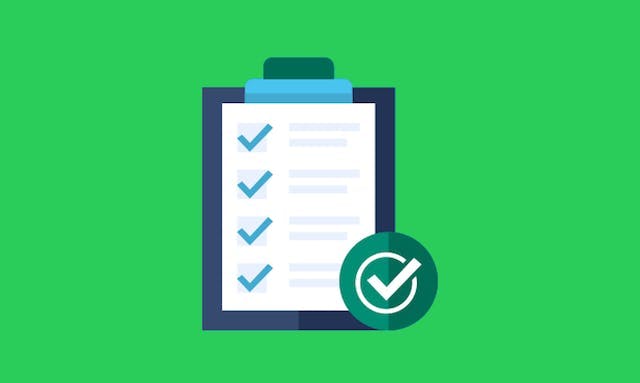
Nobody likes exams. They require a lot of preparation, can cause us to feel anxious, and are (let’s be honest) a little bit dull. Sadly, a lot of qualifications or permits that can improve our lives require that we pass some kind of an exam first. A driving licence is one of the most useful things you can qualify for and in order to get your mitts on one you need to pass an exam (among other things) first.
Before you start grieving the fact that you have to take a theory test for something that is largely a practical skill, spare a thought for those with invisible conditions that can make the prospect of sitting an exam even more daunting. We’re talking about people with learning difficulties, the most common of which is dyslexia.
What is dyslexia?

Dyslexia is a condition that impacts the way people process and learn information. As it has nothing to do with intelligence, it is considered a learning difficulty (as opposed to a learning disability). Like many medical conditions, it presents itself differently from person to person and cases range from mild to severe.
Many dyslexic people are able to function quite easily on a day-to-day basis. In fact, those with the condition tend to be particularly creative and good at visual thinking. This explains why a relatively high number of entrepreneurs and those in the arts are dyslexic. If you’re already in the club, you’re sitting alongside people like Richard Branson, Whoopi Goldberg, Jennifer Aniston, Salma Hayek and Steve Jobs. Not a bad bunch!
Problems arise for dyslexics, however, when it comes to tasks like reading, writing and remembering things.
How it can affect the theory test
For dyslexic people, written words or letters often present themselves in the wrong order. This can result in the following symptoms:
- Finding certain words hard to read
- Difficulty saying words in the correct order
- Struggling to get thoughts down on paper
- Taking a long time to understand instructions
- Not being able to spell certain words correctly
As you may have worked out by now, pretty much all of these issues can hinder progress on the theory test. Not great news! There are, however, plenty of things you can do to make life easier for yourself and earn that pass certificate. Plus, the DVSA can make special arrangements for your test if you provide them with proof that you have dyslexia (more on that later!).
What you can do to prepare

Before you book your test or start any revision, make sure you are fully aware of what the theory test actually involves. Knowing what to expect means you can start to work out how best to approach the studying stage. So, what’s the lowdown? Well, the main thing to get your head around is the fact that the theory test is split into 2 parts: a multiple choice section (50 questions) and a hazard perception test (14 video clips).
We won’t go into too much detail because there’s already a range of great articles on the blog covering the theory test, including a ‘prep for success’ walk-through, a guide to the hazard perception section and some great last minute tips!
Once you have a clear idea of how the theory test is structured, it’s time to start revising—yay! Seriously, though, this is really important if you want to be successful. Dyslexia Unwrapped suggest allocating around 6-8 weeks to study for the theory. This should be just enough time to fit everything in, but not so long that you start to forget certain elements. We’d suggest making your way through our list of top theory test revision resources—it covers everything you could possibly need to know.
Split your revision time into smaller chunks to prevent becoming bored, frustrated or overwhelmed. We do not mean to sound patronising here—it’s actually a study technique that works for lots of people, both with and without learning difficulties.
Additional help

Revision tools
Aside from drawing on the highway code and personal knowledge related to the road, a lot of people find it beneficial to make use of various study aids and revision packs when preparing to take the theory test. While we often recommend certain books and reading materials, those with dyslexia may find interactive software to be a more useful revision tool. There are plenty out there on the market.
It’s best to start out with material that you know is DVSA-approved. You’ll find official theory test guides for sale online and in book shops. There’s also the option of taking mock tests, which you can access on the DVSA’s website. We highly recommend the latter, as it gives you a taste of exactly what to expect on test day.
Support from the DVSA
Rest assured, your potential struggles don’t go unnoticed by the DVSA. In fact, they have entire systems in place to help people with conditions like dyslexia. Just make sure you highlight the fact that you require some extra help when you book your theory test. The correct procedure for doing so is to send proof from a medical or teaching professional that you have dyslexia. This can be in the form of a letter or email.
Once acquired, send the information to: [email protected] or pop it in an envelope addressed to DVSA Theory Test Enquiries, PO Box 1286, Warrington, WA1 9GN. Make sure you include a description of the type of help you require, otherwise the DVSA will just arrange what they think is needed and you might not get to amend this on the day of the test. The kind of support you can request is as follows:
- Extra time on the multiple choice section (an additional 57 minutes is sometimes provided for those with dyslexia)
- The option to listen to the questions, rather than just read them off the screen (headphones will be provided)
- A one-to-one helper to read the questions and record your answers (you can also request an oral language modifier, whose job it is to reword the questions in a way that is easier to understand)
- A coloured overlay to place on the computer screen (you will be expected to bring your own)
- The option to take the test in a separate room (only available in exceptional circumstances)
What will happen on the day

When the big day finally rolls around, treat it as you would any other day where you have an important appointment to attend. Make sure you’ve had plenty of sleep, treat yourself to a hearty breakfast and gather together everything you need to take with you. Along with important documents, it’s also a good idea to pack a few snacks and a bottle of water. Keeping your blood sugar up and staying hydrated will mean you find it much easier to concentrate when the questions begin.
Arrive at the test centre with a good few minutes to spare, so you can scope out the area and get settled in. When it’s time for the test to begin, you’ll be led to a booth with a touch-screen computer. If you’ve organised for a person to help you with the test, they will talk you through how the test is carried out. Otherwise, simply follow the instructions on the screen. There’s a 15-minute window at the beginning of the test during which you can have a practice session. We recommend making the most of this opportunity to get comfortable with the computer system.
The multiple choice section is up first. If you’ve been allocated headphones, listen to the questions and possible answers as many times as you need. Once that section is over, there’ll be a short break and then the hazard perception test begins. After that, it’s time to wait for your results!
How to keep your cool
If at any point during the theory test you start to feel nervous, just take some deep breaths and sip your water—it’s going to be fine! Chances are you’re well prepared for what’s to come and everything you’ve studied will come back into focus when it’s required. A bit of nervous energy can even be a good thing. Channel it into adrenaline for your mind and the whole thing will be over before you know it!
Remember, no one is trying to trip you up here. The DVSA are fairly straightforward folk—the questions are not designed to confuse you. Take your time, read (or listen to) all of the questions at least twice and believe in your abilities. Plenty of people with dyslexia take (and pass!) the theory test every year.
Taking the theory test with dyslexia: FAQs

I haven’t been formally diagnosed as dyslexic, but I think I might be. Can I still get extra help on the theory test?
Unfortunately, the DVSA requires proof of diagnosis from a teaching or medical professional before special requirements are granted. If you think you are dyslexic, you should arrange for a formal assessment. Consult the NHS’s guide to dyslexia to find out how to do this. It’s also worth taking one of the many free online tests to gauge how likely it is that you actually have dyslexia.
My theory test is coming up very soon and I didn’t realise there was extra help available to me. Can I just get my teacher to phone the DVSA and confirm that I have dyslexia?
No. The DVSA special requirements guidelines state that you must send proof in the form of a letter, report or email. If your test is coming up soon, you can save time by opting for the latter option.
I sent my letter to the DVSA confirming that I’m dyslexic, but haven’t heard anything back. My test is soon, what should I do?
As the DVSA is dealing with numerous enquiries on a daily basis, it will take some time for them to receive and process your information. If you are worried that it is taking too long, you can phone them on 0300 200 1122 or send a text to 0300 200 1166. Make sure you have all relevant information about yourself handy, just in case they need it to track down your details.
How long does it take to get the results and what should I do if I fail?
Once the test is complete, it should take no more than 30 minutes for you to get your results. Depending on the outcome, you’ll either be presented with a pass certificate or a letter highlighting the areas where you failed to score enough points.
Didn’t manage to pass first time? You’re not alone! Take note of the areas you need to work on, plan a new revision schedule and book a new test. If you feel like it was your dyslexia that held you back, consider giving yourself a lot more time to study and prepare for the next test.
Will my dyslexia have an impact on the practical driving test?
Possibly, yes. As long as you have a driving instructor who understands your difficulties, however, you can learn to drive just fine! If you’re not sure how many hours you need, it might be worth checking out our course recommender tool.
Just as you did with the theory test, you should make the DVSA aware of your dyslexia diagnosis when you are booking the practical test. Depending on the severity of your condition, you may be eligible for special circumstances when it comes to sections like the eyesight test and the independent driving section.
If you have additional conditions, you might find our article on learning to drive with dyspraxia helpful.
Dyslexia shouldn’t get in the way of you being able to ace the theory test and progress on your journey to being a qualified driver. Sure, you might need to employ slightly different study techniques and request some extra help, but all of that is available! It’s just a case of finding a technique that works for you.
The more we learn about dyslexia, the more it is viewed as a different approach to learning, rather than some kind of problem. Never let it get in the way of achieving your goals, whatever they may be.
If you’d like more information and tips on how to make life with dyslexia that little bit easier, there are some great organisations out there—including The British Dyslexia Association and The Dyslexia Foundation.
All that’s left for us to say is good luck and happy driving!
Subscribe for driving advice, offers & more
We'd love to let you know about our courses, news and offers via email. You may unsubscribe at any time.
Star Genie Limited trading as PassMeFast. Company number 10093359
Copyright © 2024 owned by Star Genie Limited
PassMeFast, Blue Tower, MediaCityUK, Salford, M50 2ST
